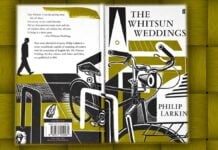The Alcoholic at Dawn by Jeet Thayil is a poignant and introspective poem that explores the themes of addiction, despair, and self-destruction. It delves into the harsh reality of alcoholism and the debilitating grip it exerts over an individual’s life. It is a profound exploration of the human struggle with addiction. Thayil examines this theme through evocative imagery, stark contrast, and an unconventional structure.
The poem is set in the early morning hours when the speaker is struggling to come to terms with his addiction. It opens with the speaker acknowledging his state as an alcoholic. He describes the physical and emotional effects of alcohol on his body, as well as the mental and spiritual toll it takes on his life. The use of the phrase “at the dawn” suggests the speaker’s cycle of addiction is unending; it continues from dusk to dawn, symbolizing a constant internal struggle. Thayil employs evocative imagery to give vivid descriptions of the first light of dawn and the subsequent contemplation it brings. He juxtaposes the serene, renewing quality of dawn with the destructive nature of his addiction. This contrast serves to emphasize the speaker’s isolation and self-destructive path.
The dawn, typically symbolising hope and renewal, is used here as a poignant contrast to the speaker’s destructive addiction. This play-off between light and darkness helps portray the oppressiveness of addiction, as well as the tragic cyclicality it represents – a day beginning and ending with alcohol. The apprehension of the day ahead coupled with his struggles with sobriety paints a vivid picture of a life dominated by addiction. The speaker is aware of his affliction yet finds himself helpless against it. This internal conflict forms the crux of the poem.
The poem is written in a spare and direct style, which allows Thayil to capture the raw immediacy of the speaker’s experience. The language is often harsh and unforgiving, reflecting the speaker’s own self-loathing. However, there are also moments of tenderness and compassion, as the speaker acknowledges the pain and suffering that his addiction has caused.
Thayil’s works are often characterized by a frank and explicit engagement with the themes of addiction and despair. Alcoholic at the Dawn is no exception, capturing the agonizing reality of alcoholism and the impact it has on one’s mundane existence. This poem encourages readers to confront the stark pain of addiction, offering compelling insight into the inner turmoil of an alcoholic, and evoking empathy for those struggling with similar issues.
The Alcoholic at Dawn is a powerful and disturbing poem, but it is also a poem of great beauty. Thayil’s use of language is both evocative and visceral, and he captures the full range of emotions that are associated with addiction. The poem is a testament to the destructive power of alcohol, but it is also a reminder of the human capacity for resilience and redemption.

Theme and Content
Thayil boldly exposes the grim realities of alcoholism. The protagonist’s day begins with alcohol, suggesting an unhealthy dependence which in turn highlights the insidious nature of addiction. The theme of despair and self-destruction is explored profoundly in this piece.
Imagery and Metaphor
The use of dawn as a backdrop is significant. Usually symbolic of hope and renewal, here it underlines a stark contrast to the speaker’s condition, highlighting the depth of his struggle. Thayil’s vivid imagery -the light of dawn, the alcoholic’s apprehension -encourages readers to acknowledge the internal turmoil of those battling addiction.
Structure and Form
The poem’s free verse structure appropriates the chaotic and unbridled nature of the speaker’s addiction. The lack of a fixed metrical pattern parallels the unpredictability of his life. By avoiding a rigid structure, he mirrors the chaotic unpredictability of the alcoholic’s life, thus extending the impact of the poem’s theme.
Language and Tone
Thayil’s language is stark and candid, refusing to romanticize or gloss over the harsh realities of alcoholism. This brutally honest approach underscores the gravity of the condition and its relentless grip on the sufferer.
Emotional Impact
Thayil’s poem leaves a strong emotional impact on the reader, fostering empathy for those battling addictions. This emotional resonance is the core strength of The Alcoholic at Dawn, rendering it a poignant commentary on addiction and despair.






























